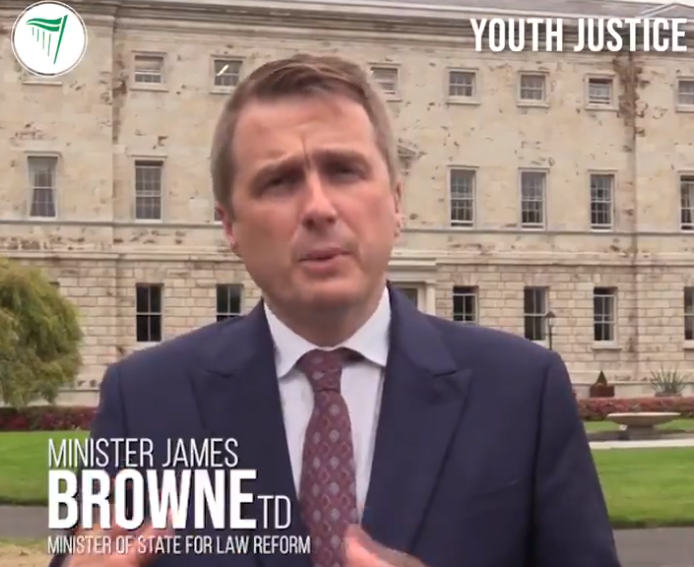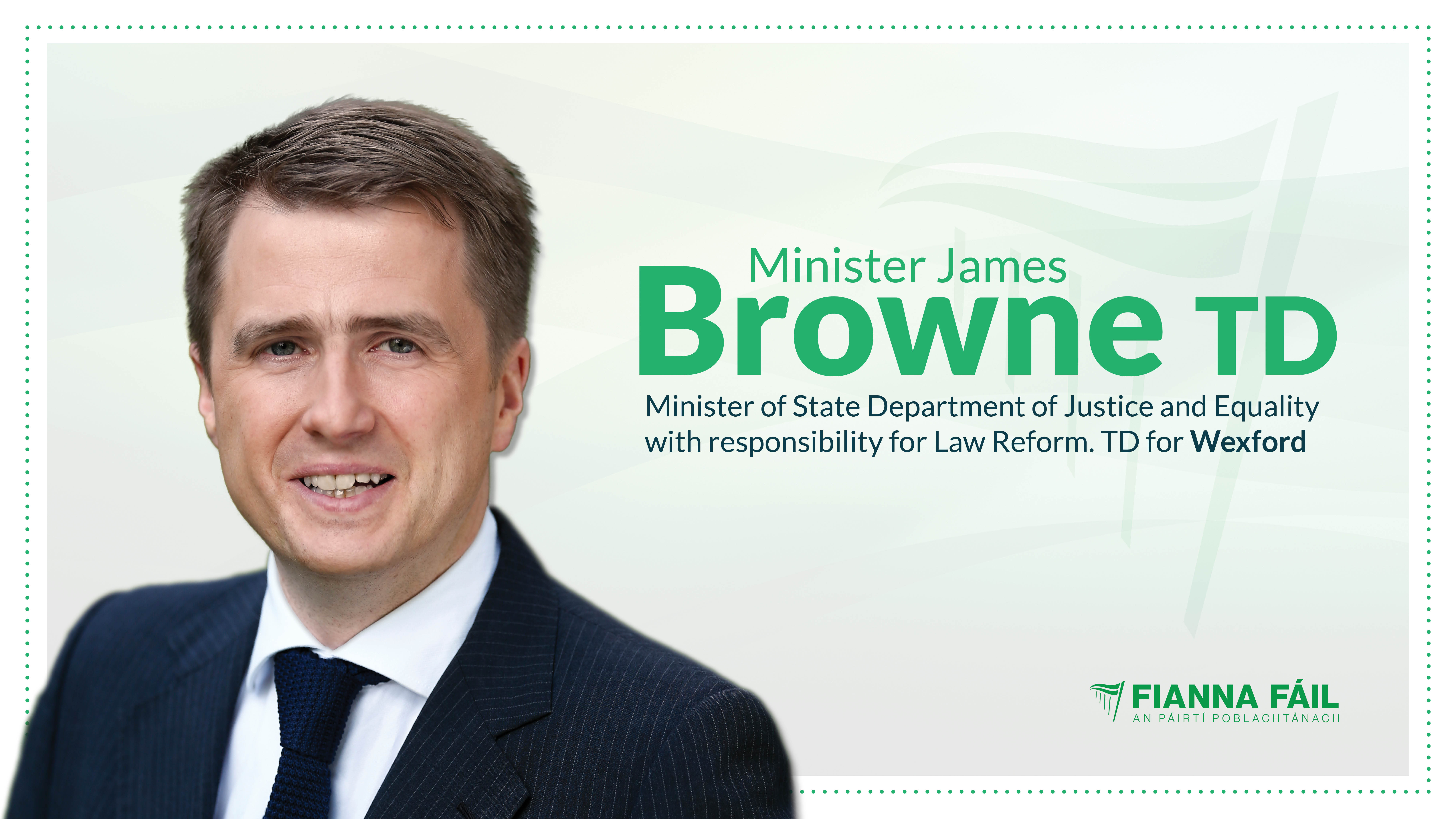Minister Browne attends Conference of Justice Ministers of the Council of Europe which adopted a new “Venice Declaration” focused on Restorative Justice
Published on: 17 December 2021
Minister of State with responsibility for Law Reform, James Browne T.D., represented Ireland at the Conference of Justice Ministers of the Council of Europe held in Venice, Italy on 13-14 December 2021.
The Conference of Justice Ministers considered the implementation of the Council of Europe Committee of Ministers Recommendation (2018) 8 concerning Restorative Justice in Criminal Matters. Issues addressed by the Ministers during the Conference included:
· the use of restorative justice in desistance from crime;
· the role of restorative justice in victims’ recovery;
· offenders’ redress and reintegration;
· juvenile offenders and juvenile victims of crime; and
· training in restorative justice.
At the Conference, the Ministers of Justice of the Council of Europe adopted the “Venice Declaration” which called on member States to develop national Action Plans to develop and use restorative justice in their respective criminal justice systems.
Speaking during an exchange of views on the role of restorative justice for juveniles in conflict with the law and juvenile victims of crime, the Minister said:
“Restorative justice is a criminal justice process, which has been shown, through mediation, to help victims recover from crime, reduce reoffending and save public resources. Ireland’s continuing commitment to restorative justice is reflected in the new Youth Justice Strategy 2021-2027, which includes a strong focus on restorative practices throughout.
The Guiding Principles of the Strategy state that Victims of Crime should have an opportunity to have their voices heard, and, where appropriate, to take part in restorative processes.”
Addressing the role of restorative justice in changing offenders’ behaviour to ensure that they do not reoffend, the Minister said:
“Restorative practices have an invaluable role to play in supporting a process of discouraging offenders from re-offending. “Making amends” to victims and communities can help offenders develop a pro-social identity that is conducive to change. If restorative justice enables an offender to accept responsibility for their actions, they have the opportunity to reform themselves, to develop maturity, to “make good” to their victims, and to repair and foster wider social bonds.
The Department of Justice Action Plan for 2021 includes Restorative Justice among its nine strategic objectives to be prioritised over the next three years.”
While at the Conference of Justice Ministers, Minister Browne held a wide-ranging bilateral meeting with Mr. Karen Andreasyan, the Armenian Minister for Justice, to discuss anti-corruption measures, penal reform, constitutional reform and the digitalisation of Justice.
Separately, Minister Browne met with Ms Judit Varga, the Hungarian Minister for Justice to discuss Ireland’s priorities for its upcoming Presidency of the Committee of Ministers of the Council of Europe (Ireland will hold the CoE Presidency from May to November 2022). Minister Browne also advised Minister Varga on Ireland’s stance on digitalisation and artificial intelligence in the field of justice.
Minister Browne was also interviewed by RAI Storia, the Italian public broadcaster’s documentary channel, on Ireland’s experiences in relation to restorative justice.


